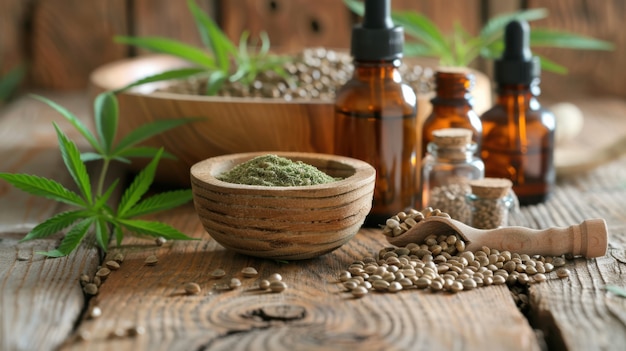Ask Ayurvedic doctor a question and get a consultation online on the problem of your concern in a free or paid mode. More than 2,000 experienced doctors work and wait for your questions on our site and help users to solve their health problems every day.
Ayurvedic Medicine for Infection – Natural Remedies & Holistic Healing

Introduction to Ayurvedic Medicine for Infection
Ayurvedic medicine for infection offers a natural and holistic approach to preventing and treating various infections by harnessing the power of medicinal herbs, lifestyle modifications, and dietary adjustments. Rooted in ancient Ayurvedic principles, these treatments focus on enhancing the body's innate immunity, eliminating pathogens, and restoring balance to the body's doshas. By integrating Ayurvedic practices into your health regimen, you can effectively combat infections, promote healing, and maintain overall well-being through time-tested natural methods.
Don't wait or self medicate. Start chat with Doctor NOW
Understanding Infections & Its Ayurvedic Perspective
In Ayurveda, infections are seen as an imbalance in the body's doshas, primarily Pitta and Kapha, often caused by accumulation of toxins (ama), poor hygiene, stress, and improper diet. Infections manifest through various symptoms such as fever, inflammation, pain, and fatigue, depending on the type and severity. Ayurvedic medicine for infection emphasizes restoring doshic balance, purifying the body, and strengthening the immune system to prevent and combat infections effectively.
Key Components & Therapeutic Benefits
1. Herbal Remedies
Ayurveda utilizes a variety of herbs known for their antimicrobial, anti-inflammatory, and immune-boosting properties to treat infections:
- Neem (Azadirachta indica): Renowned for its potent antimicrobial and antiviral properties, neem helps in cleansing the blood and preventing infections.
- Turmeric (Curcuma longa): Contains curcumin, which has strong anti-inflammatory and antioxidant effects, aiding in reducing inflammation and fighting pathogens.
- Tulsi (Ocimum sanctum): Also known as holy basil, tulsi enhances immunity and has antibacterial and antiviral properties.
- Giloy (Tinospora cordifolia): Boosts the immune system and helps the body fight off infections.
- Triphala: A combination of three fruits that purify the blood, support digestion, and eliminate toxins from the body.
2. Dosha Balancing & Detoxification
Ayurvedic treatments aim to balance the aggravated Pitta and Kapha doshas through dietary adjustments, herbal supplements, and detoxifying practices. Consuming a diet that supports dosha balance, such as including cooling and anti-inflammatory foods, helps in restoring harmony. Detoxification therapies like Panchakarma may be recommended to eliminate toxins and enhance the body’s natural defenses against infections.
3. Topical Applications & External Therapies
Applying herbal pastes and oils is a common Ayurvedic practice for treating external infections:
- Neem and Turmeric Paste: A paste made from neem leaves and turmeric powder can be applied to wounds or skin infections to reduce inflammation and prevent infection.
- Aloe Vera Gel: Soothes irritated skin and promotes healing through its moisturizing and anti-inflammatory benefits.
- Eucalyptus Oil: Acts as a natural antiseptic and can be used in steam inhalation to treat respiratory infections.
4. Lifestyle Modifications & Hygiene Practices
Adopting proper lifestyle and hygiene habits is crucial in preventing and managing infections. Ayurveda recommends:
- Regular Cleaning: Maintaining personal hygiene by washing hands regularly and keeping the living environment clean to prevent the spread of pathogens.
- Balanced Diet: Consuming a diet rich in fresh fruits, vegetables, whole grains, and adequate hydration to support the immune system.
- Stress Management: Incorporating practices like yoga, meditation, and pranayama to reduce stress, which can weaken the immune response.
- Adequate Rest: Ensuring sufficient sleep and rest to allow the body to recover and fight off infections effectively.
How Ayurvedic Medicine for Infection Works: The Science Behind the Practices
Ayurvedic medicine for infection operates on the principles of dosha balance, toxin elimination, and natural healing. The herbal remedies used contain bioactive compounds that exhibit antimicrobial, anti-inflammatory, and immune-boosting effects, effectively targeting pathogens and supporting the body's defense mechanisms. By addressing the root causes of doshic imbalance and enhancing the body's innate ability to heal, Ayurvedic treatments provide a comprehensive and sustainable approach to managing infections.
Choosing the Right Ayurvedic Remedies & Guidance
When selecting Ayurvedic treatments for infections, consider the following:
- Consult Certified Ayurvedic Practitioners: Personalized guidance ensures that treatments align with your specific constitution (Prakriti) and health needs.
- Quality of Herbs: Use high-quality, organic herbs to maximize safety and therapeutic benefits.
- Reputable Sources: Purchase Ayurvedic products from trusted vendors or certified practitioners to ensure authenticity and proper formulation.
Recommended Dosage & How to Use Ayurvedic Medicine for Infection
The dosage and application methods for Ayurvedic treatments may vary based on individual conditions. Generally:
- Herbal Decoctions: Follow the prescribed dosage, typically 1-2 teaspoons taken with warm water, 2-3 times daily.
- Topical Applications: Apply herbal pastes or oils gently to the affected area 2-3 times daily.
- Dietary Adjustments: Incorporate recommended dietary changes consistently to support treatment.
- Professional Guidance: Always adhere to the advice of an Ayurvedic practitioner to customize the treatment plan to your needs.
Potential Side Effects & Precautions
While Ayurvedic treatments are generally safe, it is essential to consider the following precautions:
- Allergic Reactions: Discontinue use if you experience irritation or allergic reactions to any herbal ingredients.
- Pregnancy & Nursing: Consult an Ayurvedic practitioner before starting any treatment if you are pregnant or nursing.
- Underlying Health Conditions: Individuals with certain health conditions should seek professional advice to avoid adverse interactions.
- Proper Application: Ensure correct application of topical treatments to prevent skin irritation.
Frequently Asked Questions For Ayurvedic Medicine for Infection
How does Ayurveda treat infections effectively?
Ayurveda treats infections by addressing the root causes of doshic imbalance through herbal remedies, detoxification, and lifestyle modifications. By using antimicrobial and immune-boosting herbs, improving dietary habits, and managing stress, Ayurvedic treatments enhance the body’s natural ability to fight off infections.
What are the best Ayurvedic herbs for infection?
Key Ayurvedic herbs for infection include neem, turmeric, tulsi, giloy, and triphala. These herbs possess antimicrobial, anti-inflammatory, and immune-enhancing properties that help combat pathogens and support overall health.
Can Ayurveda prevent infections?
Yes, Ayurveda emphasizes preventive measures such as maintaining proper hygiene, following a balanced diet, managing stress, and using herbal supplements to strengthen immunity. These practices help prevent the occurrence and recurrence of infections.
Are there any dietary recommendations for Ayurvedic treatment of infections?
Yes, Ayurveda recommends a diet that supports dosha balance and boosts immunity. This includes consuming fresh fruits, vegetables, whole grains, and spices with antimicrobial properties like turmeric and ginger, while avoiding heavy, oily, and processed foods.
How long does it take to see improvement with Ayurvedic treatment for infections?
The time to see improvement varies based on the severity of the infection and individual responses to treatment. Some individuals may experience relief within a few days, while others might require several weeks of consistent treatment for significant improvement.
Is Ayurvedic treatment for infection safe for everyone?
While Ayurvedic treatments are generally safe, it is important to consult a certified Ayurvedic practitioner, especially if you have underlying health conditions, are pregnant, or are breastfeeding, to ensure the treatments are appropriate for your specific situation.
Where can I find authentic Ayurvedic treatments for infections?
Authentic Ayurvedic treatments for infections can be obtained from certified Ayurvedic practitioners, reputable Ayurvedic clinics, and trusted online vendors specializing in Ayurvedic medicines. Always ensure the source is reputable to guarantee the quality and effectiveness of the treatments.
Conclusion & Expert Insights
Ayurvedic medicine for infection offers a natural and comprehensive approach to preventing and managing infections by focusing on dosha balance, toxin elimination, and enhancing the immune system. By leveraging the power of traditional herbs and holistic practices, Ayurveda provides effective relief from infection symptoms and supports long-term health. Consulting with qualified Ayurvedic professionals and adhering to personalized treatment plans can lead to successful management and prevention of infections, promoting overall well-being and vitality.
References & Further Reading
- Sharma, P.V. (1995). Ayurvedic Healing: A Comprehensive Guide.
- Lad, V. (2002). Ayurveda: The Science of Self-Healing.
- National Institute of Ayurveda:
- Journal of Ayurveda and Integrative Medicine for research articles on Ayurvedic treatments for infections.



